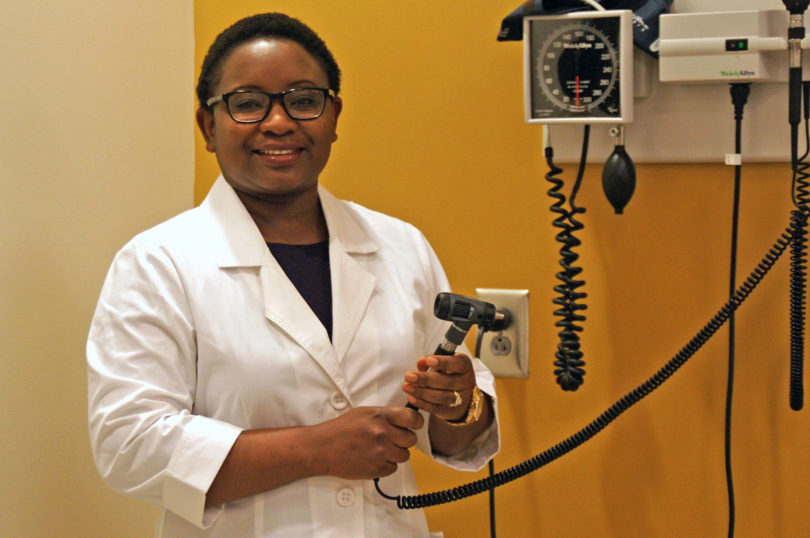Athens, Ga. – Dr. Jane Mutanga-Mutembo, a doctoral student in epidemiology at the University of Georgia College of Public Health, has been awarded the 2015-2016 Schlumberger Foundation Faculty for the Future Fellowship.
The one-year renewable grant provides female scientists from developing and emerging countries up to $50,000 to pursue advanced degrees in science, technology, engineering or mathematics—commonly known as STEM—fields.
A physician, Mutanga-Mutembo has spent a decade working with children who are living with HIV. The award will help support her research to develop mobile technology to help people living with HIV maintain good adherence to lifelong medication regimens needed to keep the virus suppressed.
“Antiretroviral medication must be taken consistently to make sure the HIV virus is suppressed,” she said. “A lot of young patients are orphans who are being looked after by their grandparents, older siblings or other relatives. It’s challenging to make sure that they take their medications correctly and daily.”
Mutanga-Mutembo plans to address this issue by developing mobile technology capable of sending interactive text messages that remind caregivers about when medications need to be taken while keeping track of the patient’s adherence to treatment.
Mobile phones have become widely available in Zambia and most of Africa. According to current estimates, nearly 78 percent of Zambia’s adult population owns a mobile phone.
By building on mobile-health solutions currently supported by the Zambian government, Mutanga-Mutembo hopes to be able to offer the service free of charge. If successful, this new technology could be expanded to help patients manage other chronic diseases, such as hypertension and diabetes.
Mutanga-Mutembo completed her medical training at the University of Zambia School of Medicine in 2005 and holds a certificate in pediatric antiretroviral therapy from Stellenbosch University in South Africa.
In 2010, she received a Fulbright fellowship to study in the U.S. at the UGA College of Public Health, where she completed a Master of Public Health in epidemiology in 2012.
Mutanga-Mutembo returned to UGA in 2013 to work on a Ph.D. in epidemiology under the mentorship of Dr. Christopher Whalen, Ernest Corn Professor of Infectious Disease Epidemiology. Working with Whalen, she is also combining her skills in medicine, data analysis, computer programming and community health to study the dynamics of tuberculosis transmission among social networks in Kampala, Uganda.
Recognizing the link between science, technology and socioeconomic development, as well as the role of education in realizing individual potential, the Schlumberger Foundation established its flagship program, Faculty for the Future, in 2004. Since then, 560 women from 68 emerging countries have received Faculty for the Future Fellowships to pursue advanced graduate studies at top universities abroad.
“There are very few women who study science in Zambia. There are so many odds against them and so many bridges to cross,” Mutanga-Mutembo said.
“One of the things I’d like to do, thanks to the support of the Schlumberger Foundation, is encourage girls and young women in my country to study science, because science is the main driver of development. Scientific innovation-that is what has made life what it is today.”







